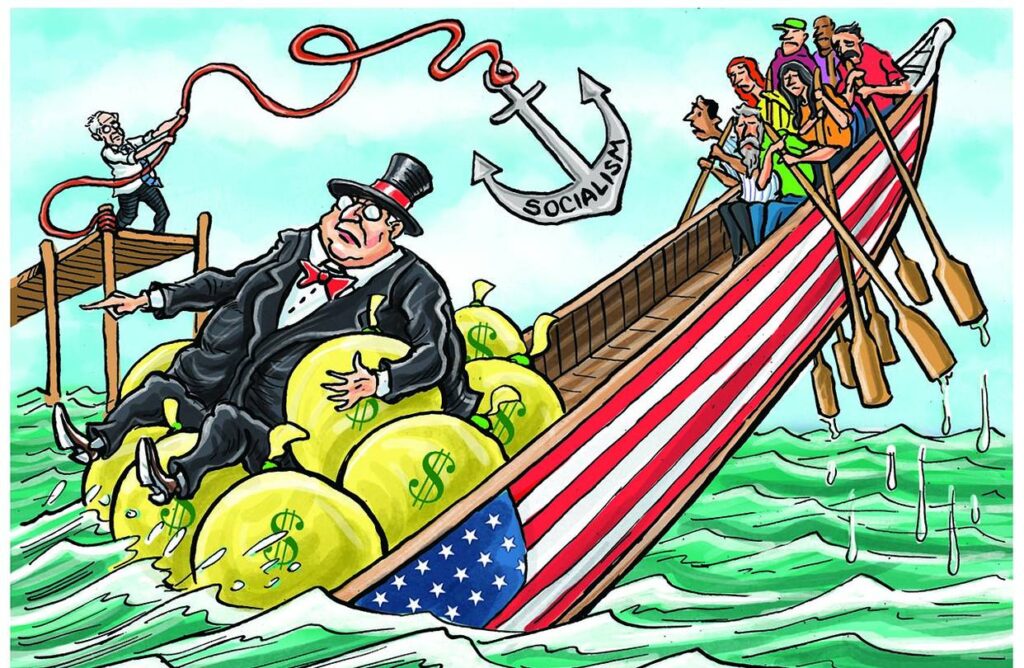Darwin’s Nightmare is a film that captures the famine, poverty and overexploitation running rampage across Tanzania. Scenes of children fighting over no more than handfuls of rice, and women prostituting themselves reveal the little “trickle down” of any profits that are made from Tanzanian laborers and resources (fish were highlighted in this movie) by foreign investors like Russia. After viewing Darwin’s Nightmare, I spent a long time reading through the erudite comments on the discussion board – many attributing the famine, poverty and overexploitation as products of Capitalism. The argument largely being that capitalism’s infatuation with progress places moral and equitable action by the wayside.
This made me think: is it capitalism that forms greed or is it our greed that has loosened the reins on capitalistic structures and ideals resulting in unethical profiteering?
Capitalism is a political and economic system that puts property in the hands of private owners instead of the state. The production and operation taking place on or with this property is to make profit. Defining characteristics of capitalism include competitive markets, price systems, and supply and demand dictated both by markets and sometimes the government. To defend the first idea, that capitalism forms greed, it is true that rules and regulations have an important effect on the way we think about each other. For example, one might wonder why they have to do an emissions check on their car? Or in terms of capitalism, it could be that the allocation of private property disassociates us from interdependency and, in effect, the connections to the harms our actions may cause. On the other hand, capitalism and its value for competition, and return on equity (ROE) are responsible for much of the technological, medical, and educational comforts we enjoy today. Capitalism develops markets and metrics but what we do with that information and how we conduct countries and foreign aid, I believe, is in part up to the people. ROE and competition are the values of capitalism but the transformation of these as ends rather than means is a road fully directed by people and their value for these ranks.
I can’t say that I have made up my mind on whether I believe capitalism forms greed or whether greed has re-formed capitalism. I don’t even know if there is an answer. It could just be that they are reinforcing feedback loops. But I do wonder whether discontinuing capitalism will achieve a paradigm shift away from profit-focused and independent societies. And if the alternative structures would, while shifting these paradigms, simultaneously facilitate more ethical and progressive values.
